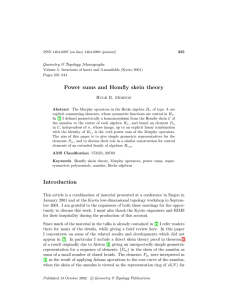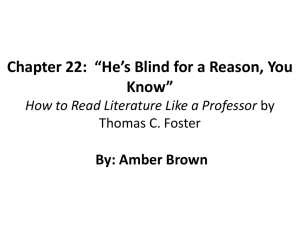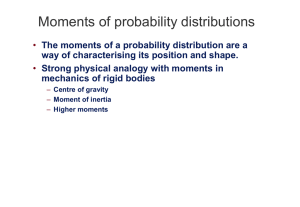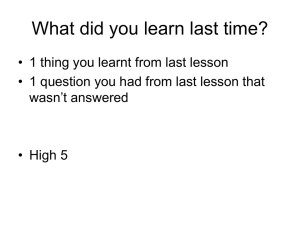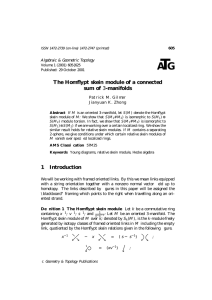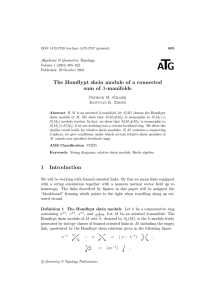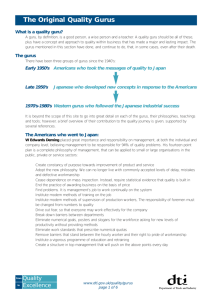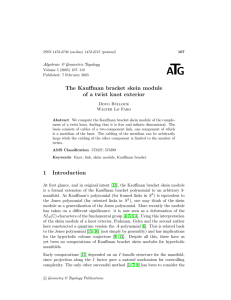Gurus for Kenosis Edwina Pio, Auckland University of Technology
advertisement
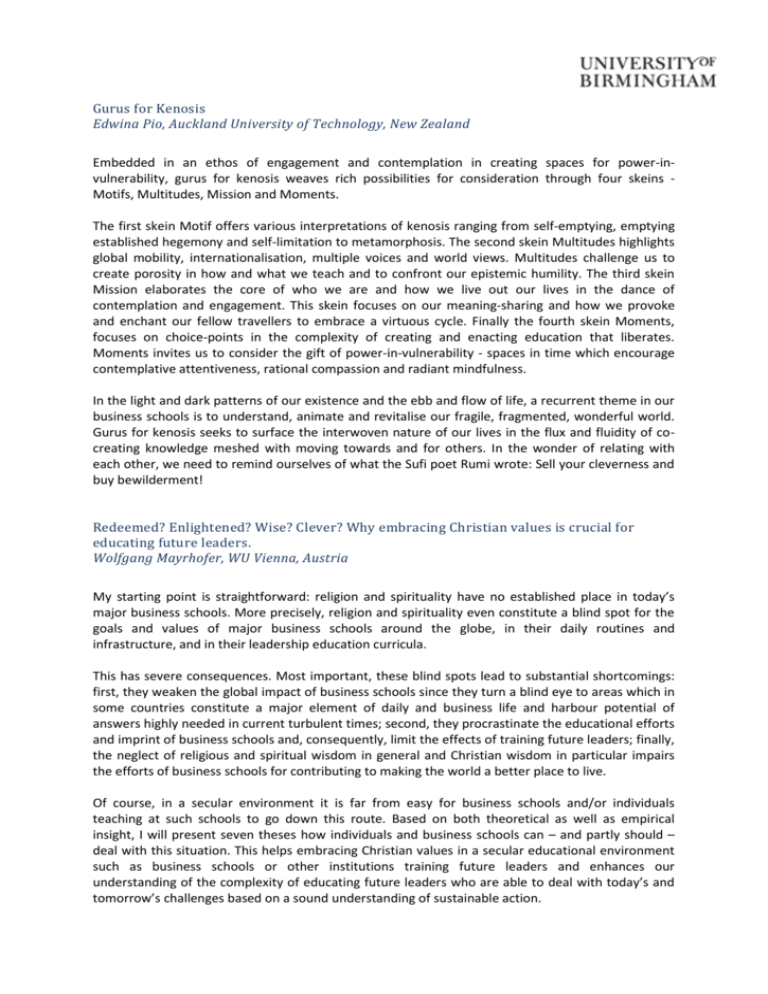
Gurus for Kenosis Edwina Pio, Auckland University of Technology, New Zealand Embedded in an ethos of engagement and contemplation in creating spaces for power-invulnerability, gurus for kenosis weaves rich possibilities for consideration through four skeins Motifs, Multitudes, Mission and Moments. The first skein Motif offers various interpretations of kenosis ranging from self-emptying, emptying established hegemony and self-limitation to metamorphosis. The second skein Multitudes highlights global mobility, internationalisation, multiple voices and world views. Multitudes challenge us to create porosity in how and what we teach and to confront our epistemic humility. The third skein Mission elaborates the core of who we are and how we live out our lives in the dance of contemplation and engagement. This skein focuses on our meaning-sharing and how we provoke and enchant our fellow travellers to embrace a virtuous cycle. Finally the fourth skein Moments, focuses on choice-points in the complexity of creating and enacting education that liberates. Moments invites us to consider the gift of power-in-vulnerability - spaces in time which encourage contemplative attentiveness, rational compassion and radiant mindfulness. In the light and dark patterns of our existence and the ebb and flow of life, a recurrent theme in our business schools is to understand, animate and revitalise our fragile, fragmented, wonderful world. Gurus for kenosis seeks to surface the interwoven nature of our lives in the flux and fluidity of cocreating knowledge meshed with moving towards and for others. In the wonder of relating with each other, we need to remind ourselves of what the Sufi poet Rumi wrote: Sell your cleverness and buy bewilderment! Redeemed? Enlightened? Wise? Clever? Why embracing Christian values is crucial for educating future leaders. Wolfgang Mayrhofer, WU Vienna, Austria My starting point is straightforward: religion and spirituality have no established place in today’s major business schools. More precisely, religion and spirituality even constitute a blind spot for the goals and values of major business schools around the globe, in their daily routines and infrastructure, and in their leadership education curricula. This has severe consequences. Most important, these blind spots lead to substantial shortcomings: first, they weaken the global impact of business schools since they turn a blind eye to areas which in some countries constitute a major element of daily and business life and harbour potential of answers highly needed in current turbulent times; second, they procrastinate the educational efforts and imprint of business schools and, consequently, limit the effects of training future leaders; finally, the neglect of religious and spiritual wisdom in general and Christian wisdom in particular impairs the efforts of business schools for contributing to making the world a better place to live. Of course, in a secular environment it is far from easy for business schools and/or individuals teaching at such schools to go down this route. Based on both theoretical as well as empirical insight, I will present seven theses how individuals and business schools can – and partly should – deal with this situation. This helps embracing Christian values in a secular educational environment such as business schools or other institutions training future leaders and enhances our understanding of the complexity of educating future leaders who are able to deal with today’s and tomorrow’s challenges based on a sound understanding of sustainable action.

